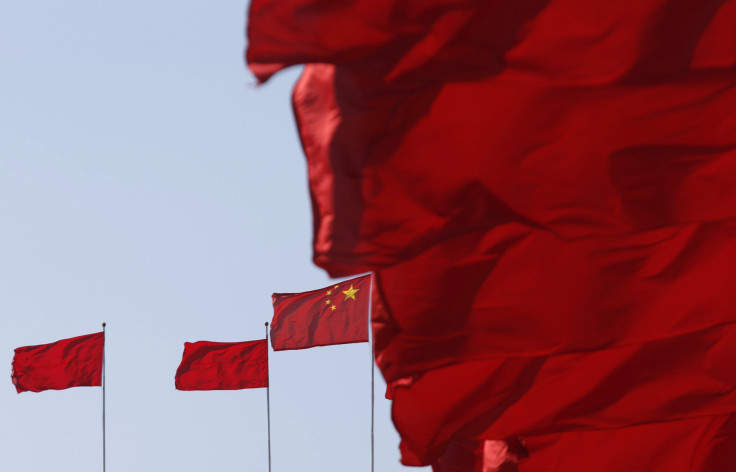China Says Detained Civil Rights Lawyers 'Confess To Crimes', Rights Groups Warn Of Major Crackdown On Civil Society

SHANGHAI -- Chinese state media say a leading civil rights lawyer, whose company is at the heart of a recent roundup of legal professionals that has attracted international condemnation, has confessed to breaking the law.
Chinese media have accused Zhou Shifeng and his company, Fengrui Law Firm, of being at the core of “a criminal gang" of activists and lawyers seeking to undermine public order by inciting protests inside and outside Chinese courts. However human rights groups have questioned the reported confession, and the United Nations, European Union and a number of governments have criticized the arrests, while activists say the targeting of Fengrui, which has represented many dissidents, civil rights activists and citizens petitioning against the government, is part of an increasingly harsh crackdown on civil society in China.
Over the past 10 days, police have taken a total of 233 lawyers and activists around the country in for questioning, including many lawyers who had signed a petition against the initial detention of Fengrui staff on July 10. Fourteen people, most of them Fengrui employees, remain in detention and have been charged with disturbing public order. The husband of Fengrui lawyer Wang Yu has also been detained, while her 16-year-old son is reported to have been prevented from leaving China to go to study in Australia. Six people are also said to be still missing.
The official Xinhua news agency said Fengrui's director, Zhou, had admitted that the firm had “violated laws and made serious mistakes.” It also said several other employees had admitted that the company “often hyped and politicized sensitive cases,” to gain prominence and international attention. Xinhua reported the lawyers were accused of repeatedly “making a scene” in order to get ejected from the courtroom, as a “trick to gain sympathy and call attention to cases.”
The authorities have drawn particular attention to the company’s links with Wu Gan, a civil rights activist who was later given a job at Fengrui. Wu first came to prominence online, after carrying out his own investigations into controversial cases: in 2009 he helped prevent a miscarriage of justice against a young woman in central China who had been arrested for murdering a local government official; Wu found and interviewed the woman, Deng Yujiao, and discovered she had stabbed the official in self defense after he and a colleague tried to rape her. After Wu posted an interview with her online, official media reported the story and Deng was eventually spared jail.
However, state media said Wu, who originally went by the online nickname The Butcher -- and later changed it to "super vulgar butcher," in response to critics who accused him of bad manners -- was hired by Fengrui purely to “incite protests.” Xinhua said Wu -- who was arrested separately last month on charges of "inciting subversion of state power" and “picking quarrels and provoking trouble" -- had “raised banners” outside courtrooms. It also accused him of “screaming slogans,” hyping cases and inciting Internet users to investigate judges’ personal probity.
Rights groups say lawyers like those from Fengrui are simply seeking to call to account a legal system that rarely hears public voices against authorities, and where state prosecutors last year achieved a conviction rate of more than 99 percent. But Fengrui had clearly angered the authorities: Wang Yu, a former commercial lawyer who took up human rights cases after herself being jailed for a dispute over a railway ticket, has represented high-profile dissidents like Uighur academic Ilham Tohti, who was jailed for life last year for inciting ethnic hatred. She also defended five young feminist activists who were held for more than a month by police earlier this year, before eventually being released without charge.
Experts say Chinese authorities have become increasingly concerned about the influence of lawyers in encouraging disenfranchised groups in society to challenge cases of alleged injustice -- and have accused rights lawyers and online activists of attempting to spread Western democratic values in an attempt to undermine China’s communist system.
In response, over the past two years the authorities have introduced tough new regulations governing the Internet, and have detained and punished a number of prominent online opinion leaders. Last year, one of China’s most prominent civil rights lawyers, Xu Zhiyong, was jailed for four years for “gathering crowds to disrupt public order,” while outspoken lawyer Pu Zhiqiang has recently been charged with inciting ethnic hatred and "picking quarrels and causing trouble," and could face eight years in jail.
State media have also increasingly reported confessions by such people before they are brought to trial -- indeed in some instances, such as that of prominent blogger Charles Xue, the cases have never actually come to court, despite the confessions being given such prominence. Rights groups say this fuels suspicions that such confessions are designed to serve the government's agenda, and in some cases may have been obtained under duress. William Nee of Amnesty International said the reports of confessions and the depiction of Fengrui as a criminal gang “calls into question whether they can get fair trials,” the South China Morning Post reported.
And Sophie Richardson, China Director of Human Rights Watch, said recently that the description of the Fengrui lawyers as a "major criminal gang" showed "the authorities' willingness to warp the law beyond all recognition."
However a commentary in the official Global Times on Monday said such foreign criticisms were “mostly out of political motivations” and were “increasingly feeble and out of focus.” Chinese media have said the crackdown on Fengrui will help "clean up" the legal profession.
© Copyright IBTimes 2024. All rights reserved.






















